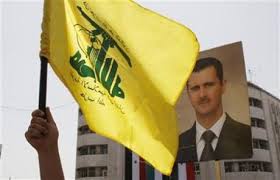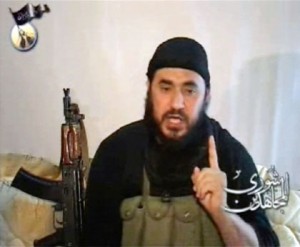 Lebanon’s caretaker Interior Minister Marwan Charbel revealed that extremist fighters of the Islamic State of Iraq and Al-Sham are present on Lebanese soil, but that the organization is not yet established in the country.
Lebanon’s caretaker Interior Minister Marwan Charbel revealed that extremist fighters of the Islamic State of Iraq and Al-Sham are present on Lebanese soil, but that the organization is not yet established in the country.
“ISIS members are present in Lebanon. What is dangerous is if they form an organization on Lebanese territory ,” Charbel told NBN television on Sunday.
Charbels’s remarks come days after a man purporting to be a member of the Al-Qaeda-linked Islamic State of Iraq and al-Sham threatened on Thursday, to kill Charbel in an audio tape.
“After minister Marwan Charbel said Wednesday that he wants us to remain in prison…we will sacrifice him, God willing,” the alleged Islamist said.
He also warned that “millions from our organization are coming to Lebanon this month of December , God willing.”
Hezbollah moving Syrian war to Lebanon
According to analysts Hezbollah’s role in Syria’s civil war changed the rules of the game. “Iraq-style” suicide bombers are coming our way and the double bombings that targeted the Iranian embassy in Beirut on Tuesday, November 19 was only the introduction.
The radical jihadis thus carried out their previous threats of converting Lebanon from an arena of “solidarity” to an arena of direct “jihad,” blaming the hostilities on Hezbollah because of its involvement in the fighting in Syria.
The sound of the blasts from the Iranian embassy attack had barely subsided when Sirajuddin Zureiqat, leader of the Lebanese branch of the al-Qaeda-affiliated Abdullah Azzam Brigades, claimed responsibility for the attack on Twitter, declaring the suicide bombers “two heroes of the Sunnis in Lebanon,” and dubbing the attack “the Iranian Embassy raid in Beirut.”
With this development an unknown branch of the Abdullah Azzam Brigades entered the limelight. In addition to the already known Ziad Jarrah Brigades, Zureiqat unveiled the Hussein bin Ali Brigades, warning, “Operations in Lebanon will continue, God willing, until two things are achieved: withdrawing the members of Iran’s Party [i.e. Hezbollah] from Syria, and releasing our prisoners from the prisons of oppression in Lebanon.”
Security sources revealed last month to the pro Hezbollah daily Al-Akhbar that the Islamic State of Iraq and Syria (ISIS) recently made a decision to carry out suicide attacks against “Shiite targets” in Lebanon, pointing out that its list of targets also includes pro-Hezbollah Sunni figures.

The daily concluded in its report that ISIS, led by Abu Bakr al-Baghdadi, has declared war in Lebanon and that ISIS may have collaborated with the Abdullah Azzam Brigades to use it as a front only to claim responsibility, but ISIS has much better capabilities.
President Michel Suleiman again called on Hezbollah to withdraw from Syria and abide by the Baabda declaration.
“Getting involved in foreign affairs in defense of a cause or weapons leads to the demise of the state,” Suleiman said on Saturday during the unveiling of statues of former presidents since the Independence at the Baabda palace, in reference to the Shiite group.
Thousands of Hezbollah fighters are reportedly helping the Syrian president Bashar al Assad forces against the mostly Sunni rebels who are trying to topple the 40 year old dictatorship. This is resulting in escalation of tension between the Lebanese Sunnis who support the rebels and the Shiites
The Baabda Declaration was issued following a national dialogue in 2012, and was championed by President Suleiman and signed by all the Lebanese parties including Hezbollah.

Leave a Reply
You must be logged in to post a comment.